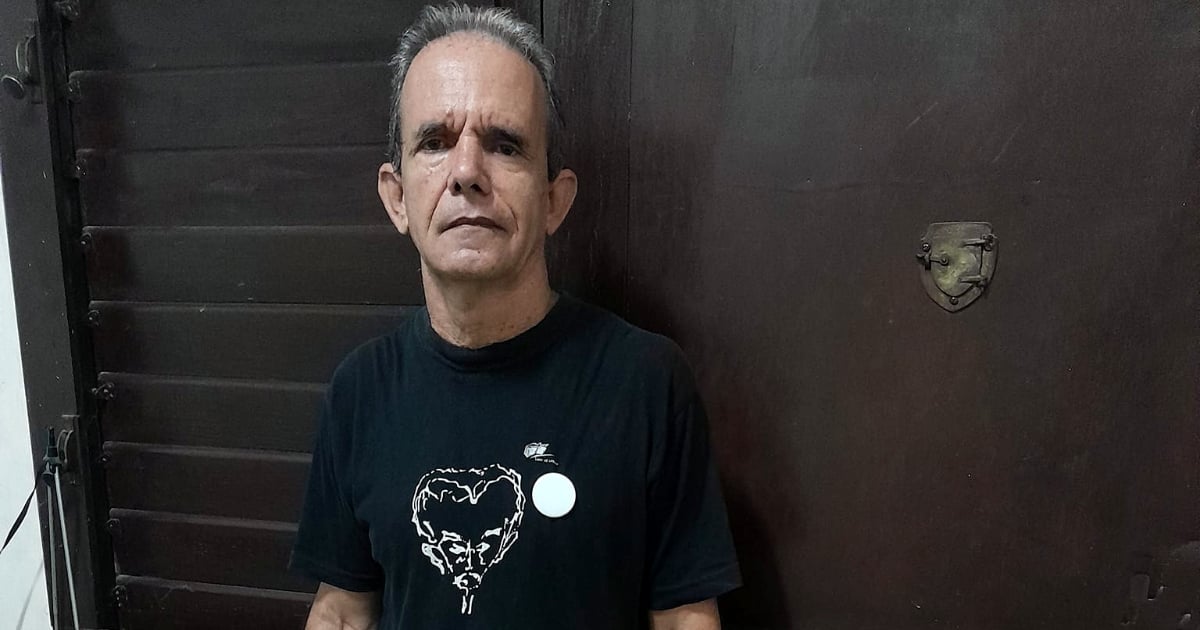
The Cuban writer and journalist Jorge Fernández Era was summoned by State Security to be "interviewed" at the headquarters of the repressive agency, known as Villa Marista, in Havana.
Harassed for years due to his critical stance towards the Cuban regime, the intellectual had never been interrogated at the headquarters of State Security, a detention center of notorious reputation among the dissidents and opponents of Cuba who have gone through its cells.
Thus, Fernández Era acknowledged it in a post on his social media, where with his usual sarcasm, he considered it an “immense honor” that the Cuban repressors increased pressure on him and urged him to appear at the grim torture center.
"Today [Tuesday] I received one of many summons. This time —an immense honor— it's for Villa Marista. I must be on their grounds tomorrow [Wednesday] at 8:00 am, and I will be hosted by the undefeated Lieutenant Colonel Kenia," the writer explained on Facebook.
Fernández Era attributed the citation to his recent resignation from the Union of Writers and Artists of Cuba (UNEAC), a gesture of solidarity taken after the expulsion of professor and academic Alina Bárbara López Hernández from that organization.
“It is clear that the State Security siege is closing in on us. Too recent is the expulsion of Alina Bárbara López Hernández from the UNEAC and my subsequent resignation, as well as the combative statement that appeared in Granma with the title ‘The Brave and the Cowards’,” the journalist stated, referring to an editorial from the official organ of the Communist Party of Cuba, which, without naming them, criticized both intellectuals.
Aware of the danger that the escalating harassment and threats pose to his physical integrity, Fernández Era once again alerted to the intention of the Cuban repressors to accuse them of common crimes to silence them and discredit the critical voices denouncing the violation of rights and freedoms by the Cuban totalitarian regime.
"The issue at hand is that they can't find a way to close our files to judge us for what is more convenient, always under the premise that we are not prisoners of conscience, but rather common criminals," he pointed out.
The interrogation this Wednesday, September 18, "is not a coincidence," observed Fernández Era, who has been monitored for months, just like López Hernández, to prevent them from carrying out the monthly civic action they hold on the 18th of each month demanding the release of political prisoners and the resignation of high-ranking officials of the regime.
"I am aware of the risks to which my 61 years and my health are exposed if tomorrow's internship extends beyond the record of eleven hours that the trip to Santiago de las Vegas set last month, but I do not fear them, nor the consequences of my actions. I am and will be free; that is a happiness that neither inquisitors nor abject individuals will take away from me," the writer stated.
Lieutenant Colonel (or Colonel) Kenia María Morales Larrea is known for her repression and harassment of artists, journalists, and activists in the cultural sector. A post by the NGO Cubalex identified her as "the instructor in the case against artists such as Tania Bruguera" and the official in charge of "the process against Carolina Barrero."
It has also been exposed as a repressor of plastic artists and critics of the regime, Luis Manuel Otero Alcántara, leader of the San Isidro Movement and a political prisoner of the Cuban regime, and Hamlet Lavastida, a talented young man forced into exile after being detained and interrogated for weeks in Villa Marista.
What do you think?
COMMENTFiled under: